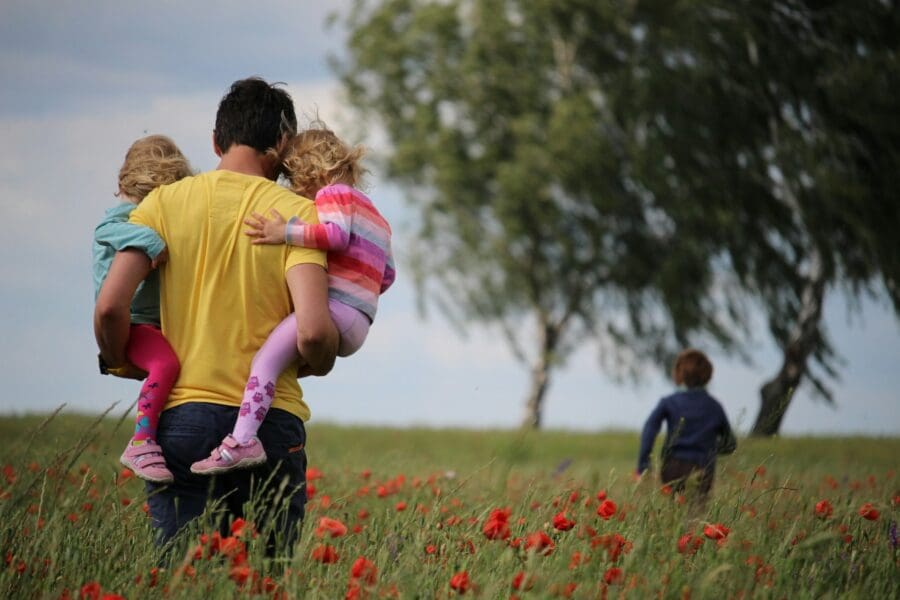Most children are aware of the concepts of death and loss. They have seen it in cartoons and movies and read about it in storybooks. Nevertheless, the death of someone close to them in real life, be it a grandparent, a parent, a classmate, or even a beloved family pet, is an experience that is often confusing and somewhat frightening for them.
If children lose a loved one when they are very young, they may experience the loss and grief many times over as they venture into adulthood, since they’ll experience many milestones without the individual they’ve lost.
As a parent, you can’t protect your child from the grief they go through after loss, but you can comfort them and make them feel safe. This blog will talk about different ways to assist kids in dealing with grief and also the significance of letting them express their emotions. With these tips, you can help your child deal with grief and loss properly so that they will do well in the future.
5 Ways to Help Children Cope with Grief
Before moving forward, bear in mind that everyone deals with grief differently and children deal with it in a completely different way compared to adults.
Toddlers and preschoolers may find it difficult to understand the loss and thus will start having accidents during potty training, be clingier, or even wet the bed. Conversely, older children may become emotionally explosive, start to avoid their favorite activities, or prefer to stay alone in their room.
Though it may appear to be difficult, the fact that we need to be patient with children while they go through the various stages of grief is very important. The grieving process does not have a fixed period, and children might require more time than adults to fully come to terms with their feelings and accept what has happened.
Therefore, before helping kids cope with their loss, it is crucial to first create a stable atmosphere and find age-appropriate techniques that will encourage kids to express their grief in their own time.
Be Honest about Death and Loss
It is important to use age-appropriate language when explaining grief to children. Encourage questions about death and loss and be honest while answering them. Share a bit of your own emotions as well and respect their feelings as well.
Moreover, be specific about what happened to the individual who passed away. Avoid euphemisms like ‘gone to sleep’ to explain death. Instead, use age-appropriate references to explain what has happened, such as means ‘their body stopped working’ or ‘they cannot breathe anymore’.
Spend Quality Time Together
Valuing and prioritizing your child are very important during this time. Although there is a lot to do and family members may have more duties because of the loss, spending a few minutes playing or interacting with the child will be of great help. For example, a game night, a refreshing walk in the park, or a movie day can be quite worthwhile and help them forget their grief for a few hours.
Encourage Creative Outlets
Children sometimes find it difficult to express their feelings verbally. In this case, you can use creative strategies to allow them to vent their emotions.
For instance, encourage your child to draw a picture of them with the loved one who has passed away. You can also create a scrapbook of pictures and memoirs to look at when your child misses their loved one. Lastly, you can give your child a journal to write poems or stories about their thoughts and feelings.
If your child feels like crying is the only way they can lighten their emotional burden, offer a comforting shoulder and respect their feelings.
Prioritize Physical Affection
Physical affection is an exceptionally powerful tool when helping kids cope with grief. The impact of touch surpasses verbal comfort and provides a deep sense of solace during emotional confusion. During moments of pain, your readiness to be near them and offer reassuring hugs can be extremely reassuring.
Consult a Professional
Some children may find it hard to process their grief, and that’s alright. At times, it just takes longer, and it is vital to be patient and provide them with the time and space they need. However, if you think your child needs some extra help or seems unable to deal with the grief, support groups, grief counselors, and therapists can be useful.
Further Thoughts
Grasping the concept of permanently losing a loved one is very hard for children. However, they should be constantly reminded that when a person dies, they never come back. Parents, guardians, and other loved ones should patiently and lovingly educate children about the idea of death and this is best achieved by providing them with clear, age-appropriate, honest information regularly.


As a pharmacist and mental health professional, I’ve navigated through the depths of depression, understanding its complexities firsthand. My journey as a chronic caregiver for my mother, who battled irreversible heart failure, has illuminated the profound realities of caregiving and loss. These experiences have deepened my empathy and underscored the crucial need for support in times of grief, caregiving, and profound loss.








Leave a Comment